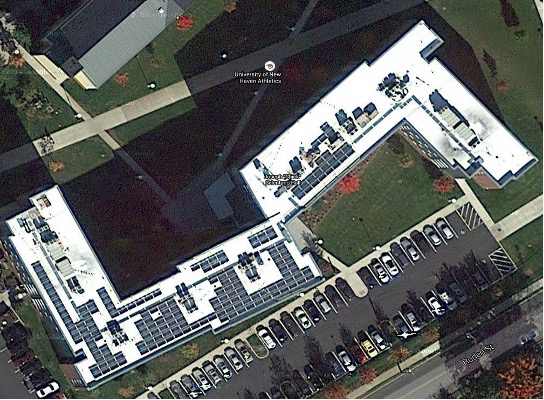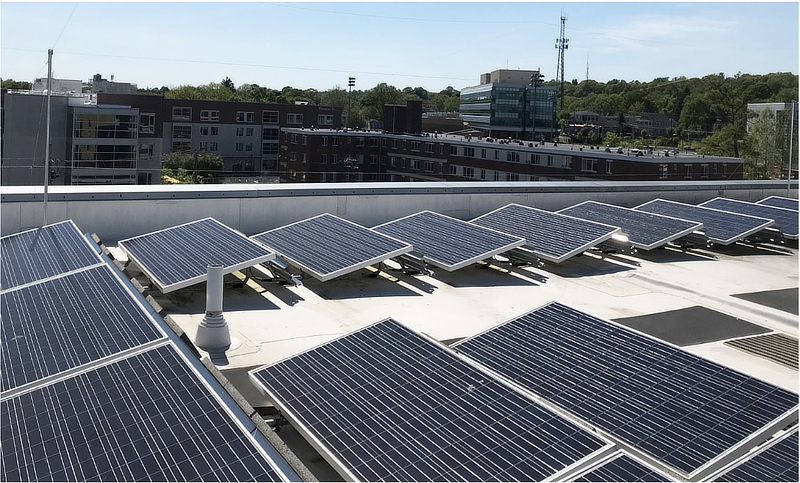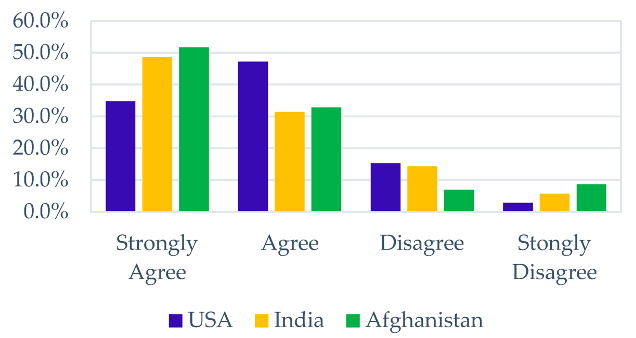Sustainability Research
-
Economic Feasibility of Campus-Wide Photovoltaic Systems in New England

Advisor:
Byungik Chang, Professor of Civil EngineeringUndergraduate Student:
Jongsung LeeSponsor:
Provost AssistantshipProject Description:
Compared to the national average residential retail electricity price, Connecticut (CT) had the 4th highest electricity price in the country with 19.23 cents/kWh in September 2015, nearly 50% higher than the national average for price of electricity. This study aims to assess the economic feasibility of the solar PV systems at the campus under realistic constraints, by analyzing actual data from the solar array on campus. The project focused on the economic feasibility of solar PV systems on campus with physical, spatial, and practical constraints that result in a project to deviate from theoretical (estimated) values. To achieve that, the prediction of the PV power generation from the building was developed and compared with the actual (measured) data.Status:
CompletedDissemination:
https://doi.org/10.1016/j.jweia.2020.104130 -
A Feasibility Study for PV installations in higher Education Institutions - A case study

Advisor:
Byungik Chang, Professor of Civil EngineeringGraduate Student:
Sai Pujitha KaranamSponsor:
University Research ScholarProject Description:
The primary objective of the study was to analyze the economic feasibility of solar photovoltaic systems (PV) in higher education institutions in CT. To perform the objective, several economic parameters were calculated and the annual electricity revenue for the University of New Haven was determined and applied to the entire state of Connecticut. The study was expanded to other states in the U.S. by normalizing the available roof area, electricity rate and solar index by each state. The total electricity generation was estimated for various regions by normalization. This estimation can be used by university administration for calculation of total power generation and total revenue per year in that particular state. With the normalization ratio obtained, one can identify the total power generation in other regions of the U.S. beforehand while considering installation of PV systems. A Life cycle analysis was performed at the end to determine how beneficial it is to adopt solar PV in the long run.Status:
CompletedDissemination:
International Journal of Green Energy:
https://doi.org/10.1080/15435075.2022.2075703 -
Analysis of Survey on Barriers to the Implementation of Sustainable Projects

Advisor:
Byungik Chang, Professor of Civil EngineeringGraduate Student:
Muhammad Rauf ShakerSponsor:
University Research ScholarProject Description:
The present impediments to the implementation of sustainable practices in residential and commercial structures in the United States, India and Afghanistan will be evaluated and compared in this study. This study intends to identify the barriers to sustainable development within the residential and commercial buildings creating a basis for the methods to address these issues. The selection of these three countries was based on taking the United States as a developed country, India as developing country and Afghanistan as an undeveloped country. Understanding the barriers studied will establish a path to overcoming them and allow the market to open up to the widespread implementation of sustainable practices. According to the survey conducted, about 91% of respondents in Afghanistan, about 71% in India and 32% of respondents in the USA have moderate to low knowledge on sustainable construction. Other barriers mentioned in the study include the high cost of materials, insufficient training, government policy, and so on.Status:
CompletedDissemination:
Sustainability
https://doi.org/10.3390/su142416830